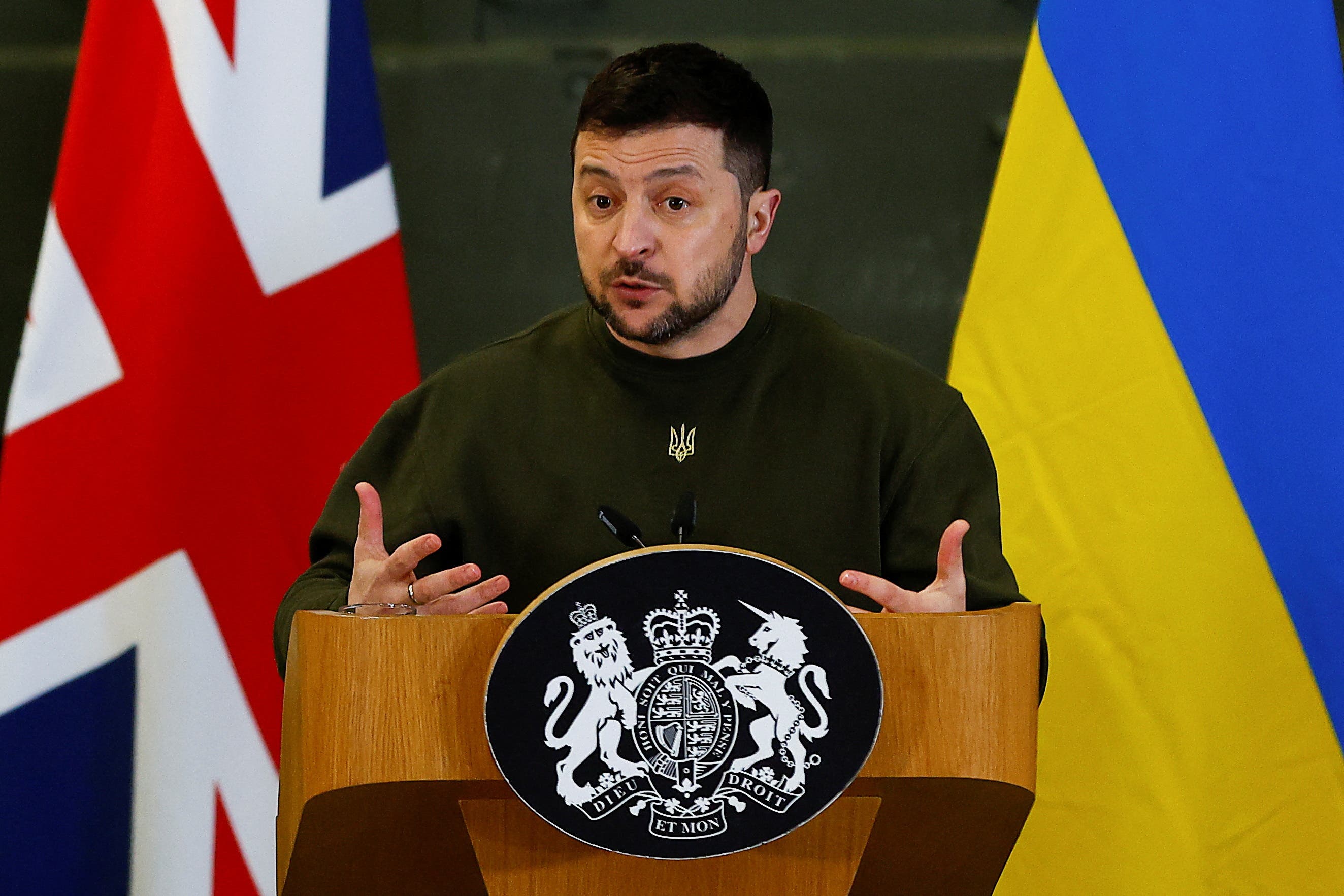President Zelensky blocked from addressing Eurovision Song Contest final
The Ukrainian leader has been barred by the EBU from delivering a video message to millions of viewers watching Saturday’s final from Liverpool.

Your support helps us to tell the story
From reproductive rights to climate change to Big Tech, The Independent is on the ground when the story is developing. Whether it's investigating the financials of Elon Musk's pro-Trump PAC or producing our latest documentary, 'The A Word', which shines a light on the American women fighting for reproductive rights, we know how important it is to parse out the facts from the messaging.
At such a critical moment in US history, we need reporters on the ground. Your donation allows us to keep sending journalists to speak to both sides of the story.
The Independent is trusted by Americans across the entire political spectrum. And unlike many other quality news outlets, we choose not to lock Americans out of our reporting and analysis with paywalls. We believe quality journalism should be available to everyone, paid for by those who can afford it.
Your support makes all the difference.President Zelensky has been barred from addressing the Eurovision Song Contest final because an alliance of international broadcasters fears it could politicise the event.
The Ukrainian leader wanted to make an unexpected video appearance during the final in Liverpool on Saturday, when it was expected he would implore the event’s global audience of millions to continue backing his country in its fight to repel its Russian invaders.
But the European Broadcasting Union (EBU), an alliance of 112 member organisations which organises the annual contest along with the host broadcaster, which this year is the BBC, has refused.
The EBU’s management team said Mr Zelensky had “laudable intentions” but that “regrettably” his request was against the rules.
The request by Mr Zelensky to address the audience at the Eurovision Song Contest, whilst made with laudable intentions, regrettably cannot be granted as it would be against the rules of the event
“The Eurovision Song Contest is an international entertainment show and governed by strict rules and principles which have been established since its creation. As part of these, one of the cornerstones of the contest is the non-political nature of the event,” an EBU spokesperson said.
“This principle prohibits the possibility of making political or similar statements as part of the contest.
“The request by Mr Zelensky to address the audience at the Eurovision Song Contest, whilst made with laudable intentions, regrettably cannot be granted by the European Broadcasting Union management as it would be against the rules of the event.”
The BBC has said the broadcast of this year’s contest in Liverpool is expected to be watched by more than 160 million viewers worldwide.
Ukraine’s Kalush Orchestra won last year’s contest but, owing to the Russian invasion of the country, hosting duties were awarded to the runner-up, the UK, instead.
The spokesperson added: “No fewer than 11 Ukrainian artists, including last year’s winners Kalush Orchestra, will be performing.
“Additionally, 37 locations around Ukraine will feature in the short film postcards that introduce each of the participating artists before they take to the stage.
“We believe that this is the best way to reflect and celebrate Ukraine’s Eurovision Song Contest win and show we are united by music during these hard times.”